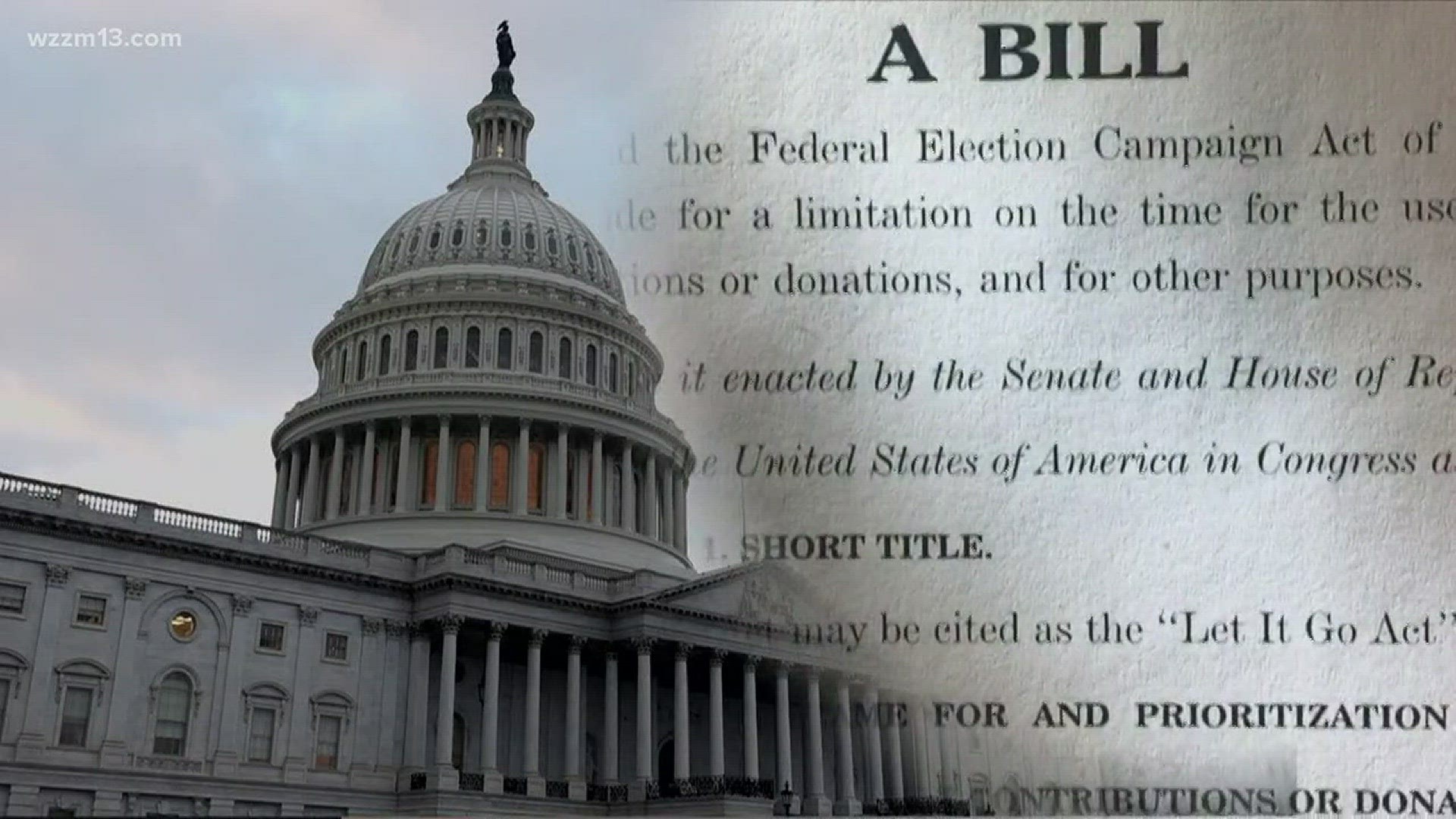He may be one of the former members of Congress being investigated in our news investigation for the use of his campaign account, but former Michigan U.S. Senator Donald Riegle says it's the right thing for news reporters around the country to continue to ask questions about so-called "zombie campaigns."
RIEGLE'S HISTORY
Sen. Riegle served in Congress from 1976 to 1995 and was chair of the Senate Banking Committee. He left office as he was identified in the savings-and-loan scandal in the mid 1990's. He left office with approximately $1 million on hand for his re-election campaign.
Riegle has kept his campaign account open since his departure in 1995 and has recent expenditures. He says he kept it open for one reason.
"Virtually all the money over the years has gone to Democratic candidates for office," Riegle said. "We offered to return the money we collected to donors and some people said yes and some people said no. I used the rest of the funds to advance the agenda of the Democratic party."
It's true Riegle didn't use the money for his own personal gain, but an investigation done by WZZM's parent company Tegna, along with the Tampa Bay Times found questionable spending by other former members of Congress. Ex-candidates spent leftover donations on airline tickets, club memberships, a limo trip, cell phones, parking and new computers. Some former lawmakers paid themselves thousands of dollars without providing any explanation for where the money went.
Tampa Bay Times/Tegna reporters analyzed more than a million records detailing the spending of former U.S. lawmakers and federal candidates. They found roughly 100 of these zombie campaigns, still spending even though their candidate’s political career was done. The reporters in this investigation also found eight campaigns that kept writing checks after the candidate died.
Riegle's campaign account is one of them identified in the investigation, not necessarily because he was spending money on himself, but because he was giving money to campaigns while he had ties to the lobbying industry.
"Virtually every penny of the money went to candidates who were running and it was all reported to the Federal Election Commission," Riegle said.
Riegle handled all of our questions while many of the former members of Congress involved in the investigation either ran away from us as we tried to ask questions or decided not to respond at all.
"It's fair for you to ask questions because they are the proper questions," Riegle said. "That's fair game. What the [zombie campaign investigation] is doing will put a stop to some of that. It will clean up the process."
OTHERS IN THE INVESTIGATION
Another Michigan connection to the zombie campaign issue wasn't nearly as transparent.
Former Michigan U.S. Rep. Dave Camp was highlighted in our investigation after federal records showed he spent thousands of dollars of his campaign money on Gogo Inflight internet, credit card bills and a cell phone in 2017. He retired in 2015.
We tried several times to contact Camp, including driving to his home in Midland, to ask him why he's wracking up the charges while working for a private company, not campaigning for public office. We didn't get an answer.
The Federal Election Commission says candidates should never personally benefit from campaign contributions. And after a 6-month wind-down period, retired lawmakers should close their accounts and donate leftover money to charity, or other established political committees.
Except, they aren't required to retire their campaigns, it's just recommended. So these politicians can keep their lucrative accounts open indefinitely.
WHAT CAN BE DONE
Some members of Congress have introduced legislation to force closures after a reasonable amount of time but the bills have never moved forward.
Meredith McGehee, Executive Director of Issue One, a non-profit organization working on governmental ethics reform and accountability, says it's not surprising the Federal Election Commission doesn't enforce or investigate potential wrong-doing when it comes to these "zombie campaigns" because she says the organization is designed to gridlock.
"Really, what it's going to take is some brave people on the Hill to step forward and be willing to offend their leadership and spend their political capital and say, this system needs to change for the better," McGehee said.
OUR MEMBERS OF CONGRESS
We reached out to all current members of Congress who have constituents in West Michigan. Nobody responded by our deadline to tell us whether they support any kind of reform.
One current member of Congress in Michigan, Rep. Dan Kildee (D-Flint) did give us a response and told us he supported change.
"Congressman Kildee believes campaign money should be used for campaign purposes and supports efforts to make sure campaign money is spent ethically," Rep, Kildee's press secretary Robyn Bryan said. "He’s looking at legislation that enforces election guidelines and will be considering them in the future."
►Make it easy to keep up to date with more stories like this. Download the WZZM 13 app now.
Have a news tip? Email news@wzzm13.com, visit our Facebook page or Twitter.

